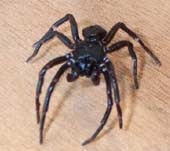According to a recent study published, a newly identified virus in China named Wetland Encephalitis Virus (WELV) may cause brain damage in some cases.
A team of researchers from the Beijing Institute of Microbiology and Epidemiology has identified this virus as WELV.
The virus was first discovered in a 61-year-old patient in the city of Jinzhou, Liaoning province, in June 2019. This individual exhibited symptoms of fever, headache, and vomiting five days after being bitten by a tick in a wetland area of Inner Mongolia. However, it was only recently that the virus was confirmed in a study published in the New England Journal of Medicine last week.

Newly discovered virus in China transmitted by ticks. (Image: iStock).
WELV belongs to the group of tick-borne viruses, similar to the Crimean-Congo hemorrhagic fever virus. Following the initial discovery, researchers conducted a thorough investigation in Northern China, where they collected nearly 14,600 ticks from various locations. Approximately 2% of these tested positive for WELV, primarily in the species Haemaphysalis concinna.
The research team also found this virus in 17 additional patients in China who exhibited symptoms such as fever, headache, dizziness, muscle pain, fatigue, back pain, arthritis, swollen lymph nodes, and neurological issues. Some patients also suffered from subcutaneous hemorrhaging.
After receiving antiviral medications, antibiotics, or immunoglobulin therapy (which provides additional antibodies that the body cannot produce on its own), all patients recovered without any long-term health side effects.
In experiments with mice and guinea pigs, this virus caused brain damage and resulted in death.
Edward Liu, head of the Infectious Diseases Department at Jersey Shore University Medical Center, noted that tick-borne diseases typically do not spread as rapidly as respiratory viruses. According to Liu, viruses or bacteria residing in ticks are characteristic of certain species, and thus do not automatically transfer to ticks in the United States. He concluded: “I am not worried about a COVID-19-style pandemic.” However, he also warned that older adults and immunocompromised patients are at greater risk from WELV causing hemorrhagic fever.
Experts say that the best prevention against tick-borne diseases is to avoid being bitten by these creatures. According to the Centers for Disease Control and Prevention (CDC), it is important to identify and stay away from areas where ticks may reside, including wooded areas, tall grasses, or brush. Ticks can also live on animals.
The CDC recommends treating clothing and gear with products containing 0.5% permethrin, which helps repel ticks. People can also use insect repellent. Clothes can be dried on high heat for 10 minutes or washed in hot water to kill ticks.





















































